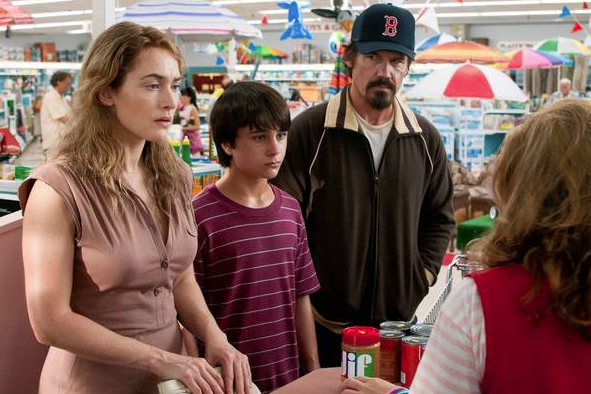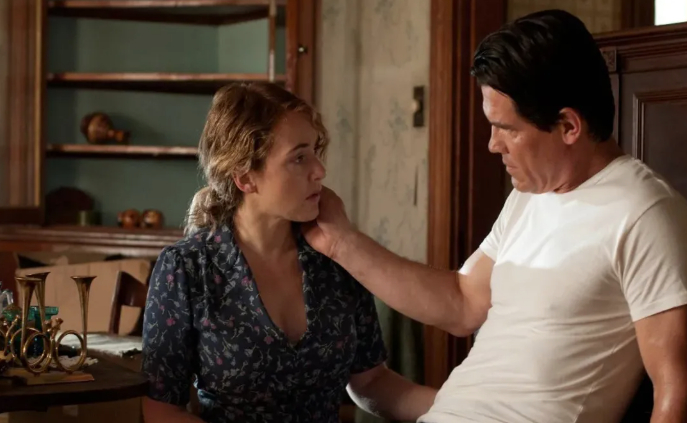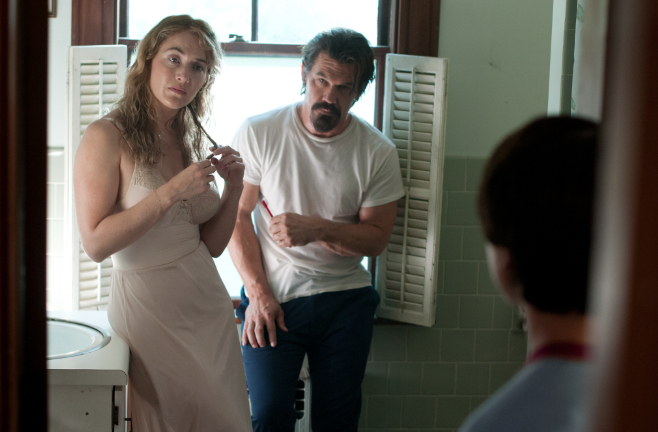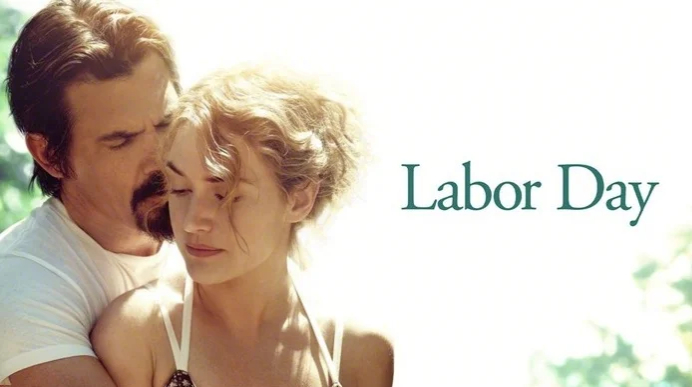Labor Day (2013)
I. PLOT OVERVIEW
Labor Day (2013), directed by Jason Reitman, is a slow-burning, emotionally charged drama that unfolds over the course of a long, life-changing weekend. The story centers on Adele (Kate Winslet), a reclusive, emotionally scarred single mother, and her young son, Henry (Gattlin Griffith), who have lived a quiet, isolated life in their small, rural New Hampshire town.
The narrative takes a turn when they encounter Frank (Josh Brolin), an escaped convict with a dangerous past, who forces his way into their home under duress. Frank, injured and on the run, insists that they help him, and as the days pass, a reluctant trust begins to form between him and the family. What starts as a tense and fearful encounter slowly morphs into an unexpected, transformative experience for all three of them.
During this Labor Day weekend, Frank teaches Henry how to play baseball, repairs broken items around the house, and even shares quiet, tender moments with Adele. Despite the looming threat of his capture, Frank becomes a central figure in their lives, offering both healing and emotional connection. As the weekend progresses, the boundaries between criminal and protector blur, as the three characters confront their own emotional wounds and begin to see each other in new, more vulnerable lights.
II. THEMES & EMOTIONAL DEPTH
At its heart, Labor Day is a story about healing and human connection. It’s about how people, broken by their pasts, can find solace and even redemption in one another. Adele’s emotional isolation, born from a traumatic past and her struggle with depression, is only disrupted when Frank, a man who’s also running from his own dark past, enters her life.

The film explores themes of forgiveness, trust, and the complexity of moral judgment. Frank, though a fugitive, embodies a form of kindness and sincerity that contrasts with the stereotypes of criminals. In his presence, Adele and Henry begin to emerge from their self-imposed isolation, offering a poignant reflection on how sometimes the most unlikely people can bring us back to life.

The film also subtly critiques the concept of second chances. Frank’s past is not black-and-white; he’s not simply a villain, but a product of circumstances. Adele’s ability to trust him again, and to let him into her home and her heart, serves as a metaphor for the power of redemption, both personal and shared.
III. CHARACTER DEVELOPMENT AND PERFORMANCES
The film is anchored by three standout performances that elevate its emotional depth:
- Kate Winslet as Adele delivers a nuanced, raw portrayal of a woman who is at once broken and strong, vulnerable yet determined. Her performance is quiet but powerful, capturing the internal struggle of a mother trying to shield her son while also confronting her own fears and regrets.
- Josh Brolin as Frank adds layers of complexity to the role of a fugitive on the run. He’s not the typical villain you might expect; rather, Frank is a man who, despite his criminal background, reveals unexpected kindness and warmth. His relationship with Adele is built on mutual respect and a silent, unspoken understanding. Brolin’s performance transforms Frank from a potential threat into a character capable of offering emotional support, even while still on the run from the law.
- Gattlin Griffith as Henry is remarkable in his portrayal of a young boy caught between the innocence of childhood and the weight of his mother’s emotional baggage. His quiet observations and eventual connection with Frank are pivotal in showing how a single transformative experience can shape someone’s life.

Together, these three actors form an intimate and compelling dynamic that drives the film’s emotional core.
IV. CINEMATOGRAPHY AND DIRECTION
Reitman’s direction in Labor Day is restrained and reflective, allowing the story to breathe and unfold gradually. The cinematography captures the quiet beauty of the New England countryside, using the serene surroundings to contrast with the emotional turbulence of the characters. The long takes and wide shots of the rural landscapes evoke a sense of isolation, both physical and emotional, reflecting the internal worlds of the characters.
The pacing of the film is deliberate, not rushing to resolve the story but allowing the relationships between the characters to develop organically. The use of close-ups—especially during intimate moments between Adele, Frank, and Henry—brings the emotional weight of their interactions to the forefront.

The score is subtle, with soft, melancholic melodies that enhance the film’s reflective mood without overwhelming the dialogue or the action. The music feels like a quiet companion to the characters’ emotional journeys.
V. FINAL VERDICT
Labor Day is a beautifully understated film that examines the power of human connection, forgiveness, and second chances. It’s not a fast-paced thriller or a grand spectacle; instead, it’s a quiet exploration of how lives can be transformed by even the most fleeting encounters.
Kate Winslet, Josh Brolin, and Gattlin Griffith shine in their roles, bringing emotional depth to a story about healing and finding new beginnings in unexpected places. Reitman’s direction and the film’s restrained pacing might not appeal to everyone, but for those who appreciate character-driven dramas, Labor Day offers a poignant, emotionally resonant experience that will stay with you long after the credits roll.
Rating: 8/10
A quiet, heartfelt drama about redemption and connection, Labor Day is an emotionally powerful exploration of the human condition, led by three deeply affecting performances.
